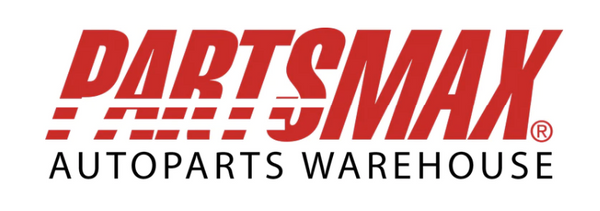
Simple Steps to Increase Your Car's Resale Value
Planning on selling your car or just want to safeguard your investment? The resale value of a vehicle is often a top priority for many car owners, as it can significantly affect your net expenditure on transportation. Although depreciation is inevitable, there are several proactive measures you can take to preserve your car's value over time. In this guide, we'll walk you through a series of steps designed to enhance your car's resale value, ensuring you get the most out of your four-wheeled asset.
Understanding the Factors That Affect Resale Value
Before diving into specific strategies, it's vital to comprehend which elements influence your car's resale price. Some of the most significant factors include:
- Brand Reputation: Some car manufacturers have a reputation for long-lasting vehicles, which can positively influence resale values.
- Mileage: High mileage generally lowers the car's value, as it's a key indicator of wear and tear on the vehicle.
- Age: Newer vehicles generally command higher prices than older ones.
- Condition: The overall state of your car, including mechanical, interior, and exterior aspects.
- Supply and Demand: The desirability of your specific make and model in the current market.
By keeping these factors in mind, you can tailor your efforts to maximize the areas where you have the highest potential to influence your car's value.
Keep Up with Regular Maintenance
Consistent maintenance is one of the most effective ways to ensure your car retains its value. Neglecting regular service can lead to more significant issues down the line and potential depreciation of your vehicle. Here's how to stay on top of your maintenance game:
The Importance of a Well-Maintained Service Record
Detailed service history can instill confidence in potential buyers by demonstrating a history of proper care. Regular servicing also ensures that any potential problems are caught early and promptly addressed, which can save you significant costs during the ownership period.
Tips for Regular Maintenance Checks and Balances
- Oil Changes: Follow the manufacturer's recommended oil change intervals. Clean oil keeps an engine in optimal condition.
- Filter Replacements: Air, oil, and fuel filters should be replaced according to the service schedule to maintain engine efficiency.
- Fluid Levels: Regularly check and top-up all vital fluids such as transmission, brake, power steering, and coolant levels.
- Tire Maintenance: Rotate tires regularly, and make sure they have the right pressure and tread depth to ensure even wear.

Protect Your Car’s Exterior
The way your car looks can make or break a deal. Whether it's the sheen of your paint or the luster of your headlights, a well-kept exterior can significantly enhance your car's curb appeal.
Simple Ways to Maintain Paint and Bodywork
- Regular Washing and Waxing: Wash your car with car-wash soap, and apply a wax every six months to protect the paint from the elements.
- Minor Repairs: Don’t ignore dents, chips, or scratches; address them with touch-up paint or professional repair to prevent rust.
- Avoiding Environmental Hazards: Park out of the sun to prevent bleaching, and steer clear of areas with bird droppings, tree sap, and industrial fallout.
The Role of Garage Parking and Car Covers in Preserving Value
- Garage Park: Parking in a garage protects your car from the elements and potential vandalism, which can keep the exterior in better shape for longer.
- Car Covers: If garage space is unavailable, a car cover offers an affordable layer of protection against the weather and UV rays.
Maintain the Interior Like New
A clean and well-kept interior can go a long way in securing a good resale value. Potential buyers want to visualize themselves in a car that feels new, and a tidy interior is an important factor in that perception.
Strategies for Keeping the Interior Clean and Odor-Free
- Regular Vacuuming: Vacuum the seats and floor regularly to remove dust, dirt, and debris.
- Stain Prevention and Treatment: Use floor mats and spot-clean spills immediately to prevent stains.
- Deodorizing: Address any unpleasant odors with fabric fresheners and occasional deep cleans to maintain a fresh interior.
The Impact of Wear and Tear on Interiors
- Upholstery: Keep leather and fabric upholstery conditioned and clean to prevent cracking and tearing.
- Dashboard and Trims: Use cleaning products specifically designed for the dashboard, steering wheel, and trims to avoid damage.
- The Importance of Restraint: Encourage passengers to wear seat belts and tether pets to keep interior surfaces intact.
Upgrade with Care
Upgrades can add value to your car, but they must be approached with careful consideration. Not all upgrades will increase your car's resale value, and some might even decrease it if they are seen as overly personalized or unnecessary.
Choosing Upgrades That Boost Value vs. Those That Don’t
- Provenance: OEM (original equipment manufacturer) or factory-approved aftermarket parts and upgrades are more likely to add value.
- Performance Enhancements: Carefully selected performance upgrades can be attractive to some buyers and can retain or increase value.
- Customization and Appearances: Avoid extensive modifications that significantly change the car's original appearance.
How to Select Modifications That Appeal to Buyers
Research similar vehicles on the market to understand what upgrades are in demand. For example, technology upgrades such as enhanced sound systems or navigation could be more attractive and practical than cosmetic changes.
Document Your Car’s History
Clear and accessible documentation can be the difference between a sale and a pass. It not only provides proof of the car's care but also saves time for potential buyers who want to know the background of the vehicle they are considering buying.
Keeping Detailed Records of Maintenance and Upgrades
- Organize: Keep all records in a chronological order, and store them in a safe, dry place.
- Digital Copies: Create digital backups of all records to ensure they are easy to share and won't be lost.
How Proper Documentation Can Increase Trust and Value
A comprehensive history of maintenance and upgrades shows that you're a responsible owner. Transparency builds trust, and a buyer who trusts the vehicle's history is more likely to pay a higher price.
Professional Inspection and Certifications
For a more professional touch, consider getting your vehicle inspected by a certified mechanic, or even better, certified pre-owned (CPO) status from the manufacturer. This step can significantly boost your car's perceived value and the trust level of the potential buyer.
Getting Your Vehicle Certified Pre-Owned (CPO) Status
This status implies that the car has been restored to 'like new' standards, comes with a manufacturer warranty, and typically demands a premium price in the market.
How a Professional Inspection Can Increase Resale Value
- Thoroughness: An inspection from a professional carries more weight than a casual review by a buyer.
- Official Record: The subsequent certification provides official documentation that indicates the vehicle's condition and history.
Strategic Selling Tips
How you sell your car can also affect its resale value. From listing your vehicle at the right time to crafting an appealing advertisement, here's how to make a lasting impression.
Timing the Market: When to Sell for the Best Price
Research seasonal trends in the used car market. Typically, luxury cars sell well around tax refund time, while convertibles are popular in the summer months.
Crafting Your Vehicle’s Listing for Maximum Appeal
- Quality Photos: Take clear, well-lit photos from multiple angles to provide a comprehensive view of the vehicle.
- Detailed Description: Be honest and thorough in describing your car, highlighting its features and any maintenance or upgrades.
- Setting the Right Price: Research the market and set a competitive price. Be prepared to negotiate, but also know the lowest price you're willing to accept.
Conclusion: Maximizing Your Investment
By following these simple steps, you can ensure that your car maintains its value and stands out in a competitive market. Remember, the effort expended on maintaining your car will often be rewarded when the time comes to sell.
Resale value isn't just about the car’s monetary worth; it reflects on the time, care, and management that you've invested in your vehicle. By treating your car as a long-term investment, you'll not only save on potential repairs down the line but also have a better chance of recouping a significant portion of your initial investment. Now, go out there and make your car the benchmark for resilience and longevity.

